How Many Calories Are In Cheese?
How Many Calories Are In Cheese? Can Eating Cheese Help You Lose Weight?
Cheese is a staple in many diets around the world and offers a rich flavor profile with numerous health benefits. However, the question remains—can cheese actually help you lose weight? And how many calories does cheese contain? This article delves into the nutritional content of cheese, its health benefits, and ways to incorporate it into a weight-conscious diet safely. Read on for everything you need to know about enjoying cheese healthily.
1. How Many Calories Are in 100g of Cheese?
According to the United States Department of Agriculture (USDA), 100 grams of cheese contains approximately 402.5 calories. However, the kind of cheese affects the calorie content. For example, a small 15g piece of Laughing Cow cheese has about 67 calories, while a 100g serving of mozzarella cheese contains around 280 calories. The higher calorie count in cheeses like cheddar or Gouda makes them rich and satisfying but also means portion control is key.
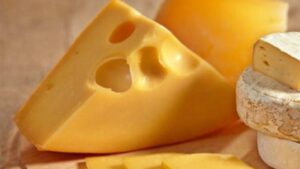
2. Is Cheese Good for Your Health?
Cheese is more than just a flavorful ingredient—it’s also packed with essential nutrients that support bone health, immune function, and much more. Let’s examine the advantages in more detail:
- Strong Bones and Teeth: Cheese contains calcium, vitamin A, B vitamins (especially B2, B12), and vitamin K2, all of which contribute to bone density and strength. Regular, moderate consumption of cheese can help maintain bone health and prevent osteoporosis as we age.
- Cancer Prevention: Some studies suggest that the linoleic acid found in cheese can help reduce cancer risk, as it may inhibit cancer cell growth and aid in fighting free radicals.
- Heart Health: Cheese contains fats that help keep arteries clear and reduce stroke risk when consumed in moderation. Omega-3 fatty acids and vitamin K2, especially in cheeses made from grass-fed animals, are beneficial for cardiovascular health.
In short, cheese offers several health benefits when eaten in moderation, with a focus on high-quality and unprocessed varieties.
3. Does Eating Cheese Cause Weight Gain?
With its high fat content, some may wonder if cheese could lead to weight gain. However, cheese does not necessarily cause weight gain if eaten correctly. The key lies in portion control and pairing cheese with a balanced diet. Cheese, being rich in protein and healthy fats, can promote satiety, helping you feel full longer and reducing the tendency to snack on less healthy foods.
Furthermore, the calcium in cheese may encourage the body to burn fat, making it a surprising ally in weight management. The protein content in cheese also helps stabilize blood sugar, which is beneficial for energy levels and weight control.
4. A Sample Cheese-Based Meal Plan for Weight Management
Including cheese in your diet can be a healthy choice when done right. Here’s how to add cheese to your diet without worrying about gaining weight:
- Breakfast: Consider grating a small amount of cheese on whole-grain toast or adding it to a morning omelet with vegetables. The protein in cheese combined with fiber from whole grains and veggies will keep you full until lunch.
- Salads: A sprinkle of feta or a slice of mozzarella in salads adds flavor and texture. Pair cheese with fiber-rich vegetables for a balanced and low-calorie meal.
- Cheese with Fruit and Nuts: Combining cheese with fruits like apples or pears and a handful of nuts can be an excellent snack for midday. This combination is nutrient-dense and filling.
- Cheese for a Savory Snack: Cottage cheese, often lower in calories and rich in protein, makes a great choice for a healthy snack. Add fresh herbs or a sprinkle of black pepper for extra flavor without added calories.
Keeping servings around 30-50 grams of cheese per meal can provide a satisfying, nutrient-rich addition to your diet without excessive calories.
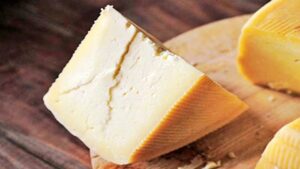
5. Tips for Enjoying Cheese Safely and Effectively
While cheese offers many health benefits, there are some precautions to keep in mind to ensure you enjoy cheese safely:
- Limit Intake: Experts recommend limiting cheese to about 50 grams per day to avoid excessive calorie intake. Larger portions of cheese can contribute too many calories and saturated fats, which may hinder weight loss goals.
- Avoid Late-Night Cheese: Eating cheese late at night can sometimes lead to digestive discomfort, especially in those sensitive to dairy. Also, high-fat foods like cheese may interfere with sleep for some people.
- Choose Low-Fat Cheeses When Possible: Low-fat cheese options, such as cottage cheese and mozzarella, have less saturated fat, making them ideal for weight management.
- Watch Pairings with Cheese: Some foods don’t pair well with cheese for digestion or nutrition reasons. For example, combining cheese with leafy greens like spinach and swiss chard can sometimes interfere with calcium absorption due to oxalates in the greens. Similarly, try not to mix cheese with fish, soy-based foods, or high-tannin foods like tea to avoid digestive issues.
For children, it’s also wise to wait until they are at least one year old before introducing cheese to ensure that their digestive systems are ready.
6. Can Cheese Be Part of a Weight-Loss Diet?
The answer is yes, as long as it’s consumed thoughtfully. When included in a balanced diet and eaten in moderation, cheese can actually aid in weight loss efforts. Cheese’s protein and fat content help control hunger hormones, and its calcium content promotes fat burning. Here are some pointers for including cheese in a weight-loss plan:
- Opt for Fresh, Unprocessed Cheeses: Choose options like ricotta, cottage cheese, and fresh mozzarella that are lower in fat than aged cheeses. They tend to be lower in calories but still provide protein and calcium.
- Add Cheese to Fiber-Rich Foods: Cheese paired with fiber-rich foods, like whole grains, fruits, and vegetables, aids in digestion and promotes fullness, preventing overeating.
- Moderate High-Calorie Cheeses: When enjoying richer varieties, such as cheddar or gouda, use small amounts to add flavor rather than relying on them as the main protein source.

7. Frequently Asked Questions about Cheese
Does Eating Cheese at Night Cause Weight Gain?
It’s generally safe to eat cheese at night in moderation, though large amounts could lead to indigestion in some people. High-fat foods before bed may also interfere with sleep quality, so opt for small portions if eating cheese in the evening.
Can I Lose Weight if I Eat Cheese Every Day?
Yes, but portion control is essential. Including a small amount of cheese in your daily diet can help you lose weight by satisfying cravings, but balance it with other nutrient-dense foods like vegetables, lean proteins, and whole grains.
What’s the Best Type of Cheese for Weight Loss?
Low-fat cheeses, such as cottage cheese and ricotta, are lower in calories and high in protein, making them ideal for weight loss. Harder cheeses like Parmesan can be used sparingly as a flavorful topping for dishes without adding too many calories.
With these guidelines, you can enjoy cheese as part of a balanced diet and take advantage of its nutritional benefits without fear of unwanted weight gain. By selecting the right types of cheese and keeping portions reasonable, cheese can fit well into a healthy lifestyle.
News




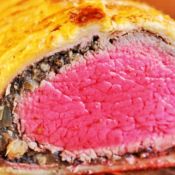
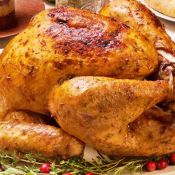




Related Posts




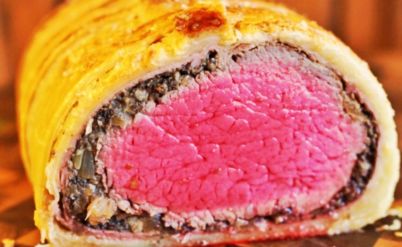
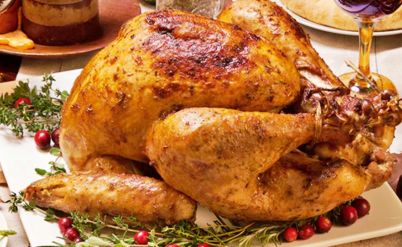
Search
Recent Posts
- EXCLUSIVE: New MasterChef Host Grace Dent Once CRITICIZED the Show and Took Jabs at Gregg Wallace – Will She STIR UP More Drama in the Kitchen?””
- Phil Collins, 73, Shares HEARTBREAKING Health Update That Has Left Genesis Fans Devastated – Is This the END of an Era?
- EXCLUSIVE: Tulisa Contostavlos Finally OPENS UP About the REAL REASON Her Romance with Bandmate Fazer Ended – What Happened Behind the Scenes?
- How to Master the Perfect Chicken Sunday Dinner at Home
- Beef Wellington Recipe
Recent Comments